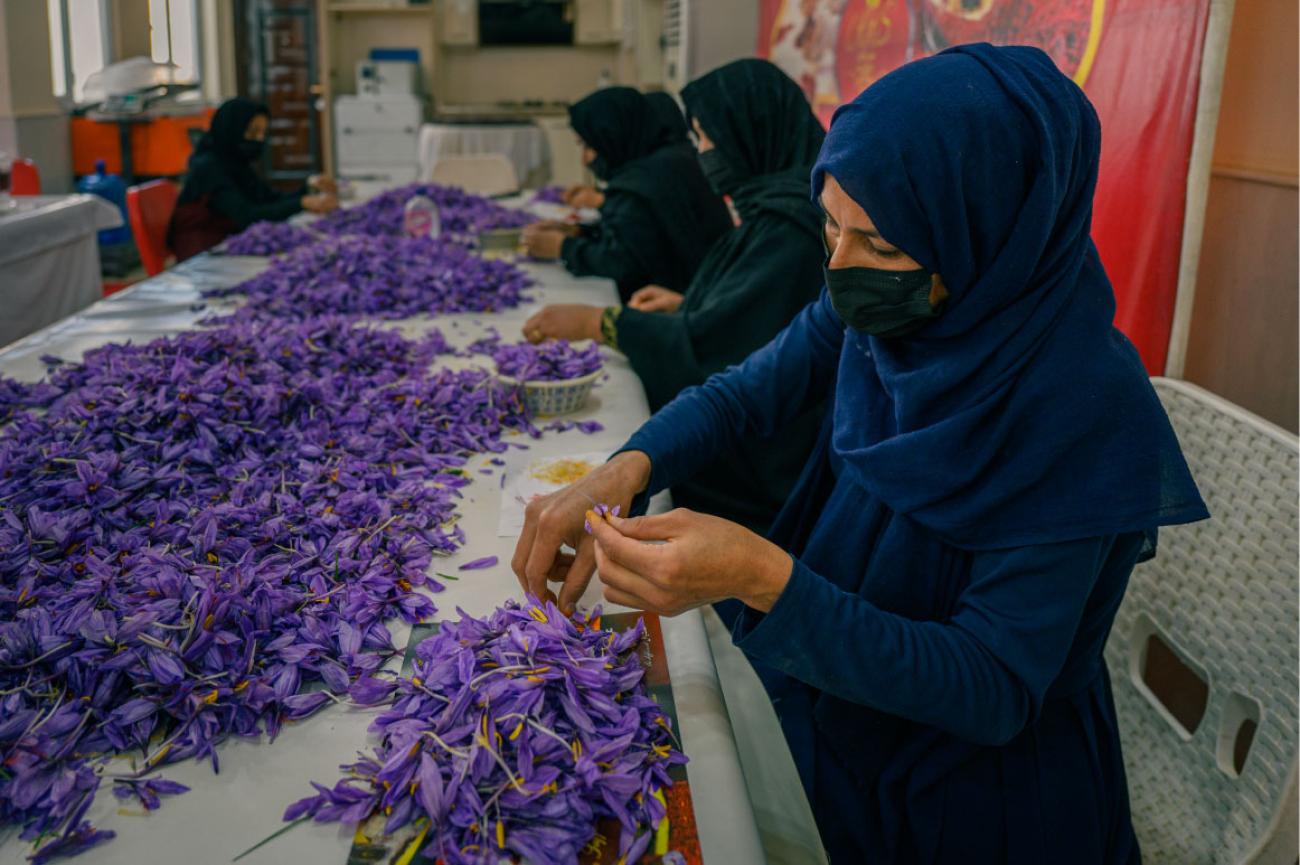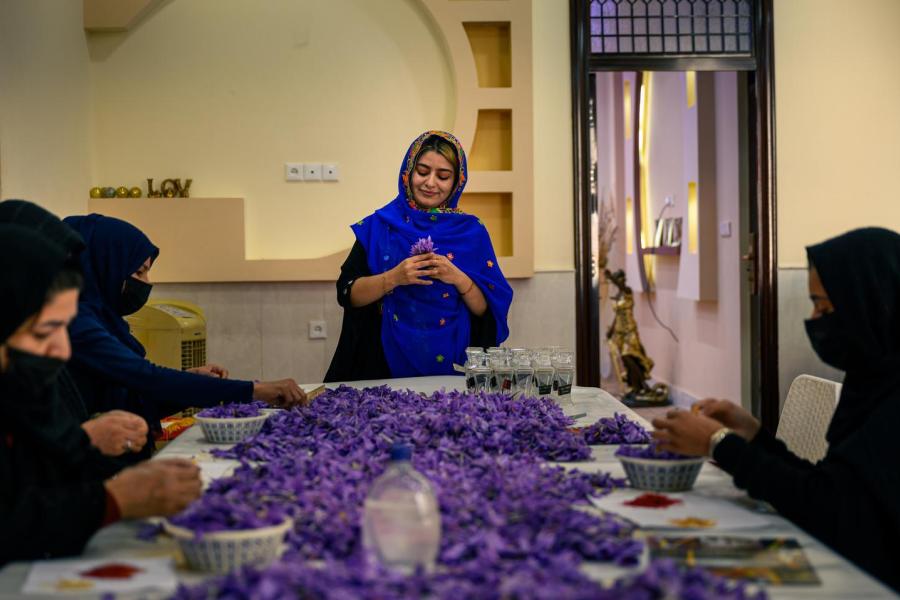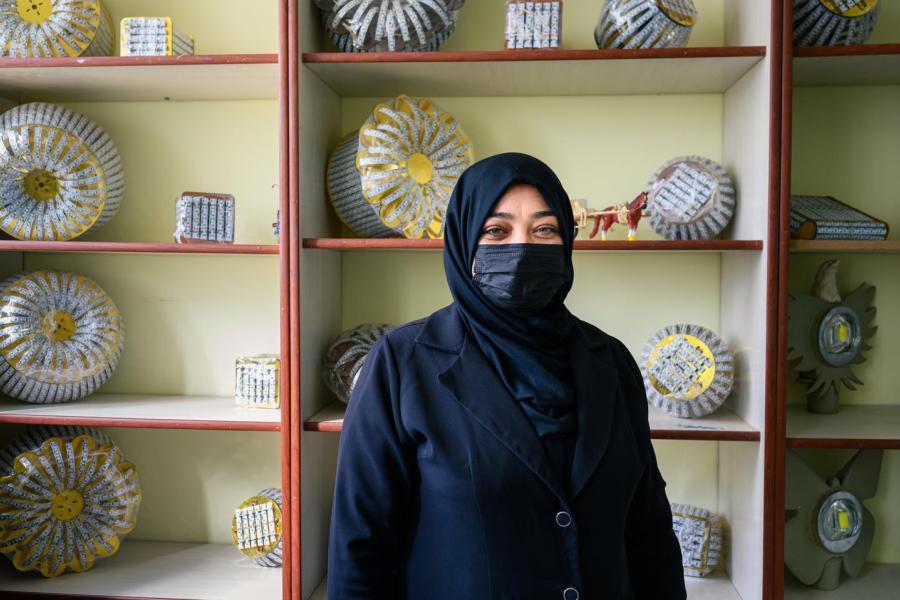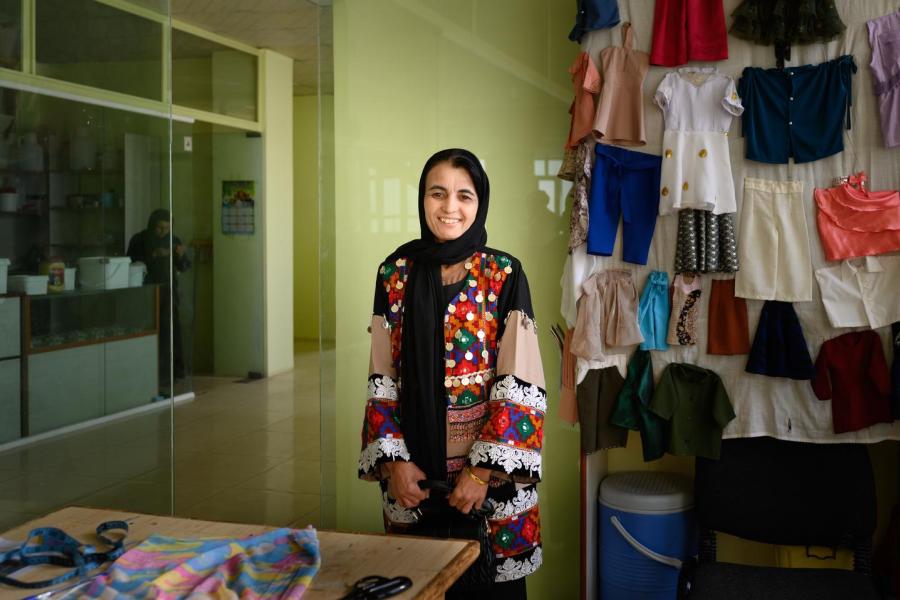What Supporting Women-Led Businesses Really Means in Afghanistan

Supporting women-led businesses in Afghanistan empowers women to reclaim their place in a society that often excludes them.
The European Union has been a dedicated partner to UNDP in promoting inclusive economic recovery and resilience in Afghanistan, particularly through sustained support to women-led micro, small, and medium enterprises (MSMEs). Since 2022, this partnership has focused on protecting community-based livelihoods, expanding access to finance, and strengthening women’s role in the local economy amid one of the world’s most challenging socio-political contexts.
Supporting women-led businesses in Afghanistan is about more than boosting the economy it’s about giving women a chance to reclaim space in a society that often pushes them out.

“Psychologically, it’s so important for women to be part of society,” said Shabita Omidwar, who runs ARS Saffron in Herat. “Having their own income means they don’t have to depend on anyone or beg.”
With support from a UNDP initiative funded by the European Union, Shabita was able to upgrade her equipment, grow her business, hire 20 women, and raise their salaries. “I’m proud I built this company and that I can offer jobs to other women,” she said.
She’s not alone. Across Afghanistan, more than 3,000 women-led businesses have received grants through this project, creating over 8,000 jobs. From cities like Herat to rural villages, these businesses are opening doors.
More Than Work, a Space to Heal
In the rural district of Pashtun Zarghun, a newly rehabilitated women’s community center is buzzing with activity. Women gather to sew, weave carpets, and embroider. Others come to learn, to teach or simply to connect.

The center, painted bright blue and filled with sewing machines and looms, now hosts over 170 trainees aged 17 to 35. Some are teenage girls who can no longer attend school. Others are widows like Zia Gul, who’s using her embroidery skills to support her seven children.
Mozghan hopes to grow the center’s impact, but there are still obstacles especially lack of funding. “We could do so much more with more support,” she said. “There are so many women here who want to work, build something, stand on their own two feet.”
Markets Rebuilt, Dreams Restarted
In Herat City, a major women’s market has also been revived. The Khadija tul Kubra market now hosts 31 shops and provides a clean, well-equipped space for women to sell their goods and train others. Thanks to solar panels and basic upgrades, business is thriving.

In neighboring Badghis, another women’s market was rehabilitated in the city of Qala-e-Naw. It now houses 54 shops and supports over 100 women in everything from handicrafts to ice cream-making.
Susan, who runs a small restaurant there, dreams of expanding. “I want to open a place in Herat City one day,” she said. “But capital is the challenge.”
Access to Money Remains a Barrier
That’s a common issue. Most Afghan women can’t get loans either because they lack collateral or can’t afford the interest. Even those with established businesses struggle to grow without financial support.
To help, UNDP and the EU are working to create savings groups small, community-based loan pools where women contribute together and borrow collectively.
For the seven Amini sisters in Herat, two small grants helped them turn a home-based tailoring business into a thriving store with 30 employees. “We started this because we wanted a future,” said Zahra, one of the sisters. “Now we want to grow even more.”
Training is Key
Support isn’t just about money it’s also about knowledge. More than 4,000 women have received training in business and technical skills. Many say it’s helped them improve their products, find customers, and grow their profits.
Shukria Ahmadi runs a medicinal herbs business in Herat. With training and funding, she now employs over 500 people in rural areas to collect and process plants. “There are so many women with ideas, but they need support,” she said. Her employee, Safia Ahmadi, 65, lost a son to war. For her, work has meant stability and purpose.
Across Afghanistan, these women are proving that with the right support funds, training, space they can lift themselves and their communities. They're not just running businesses. They’re creating futures.




